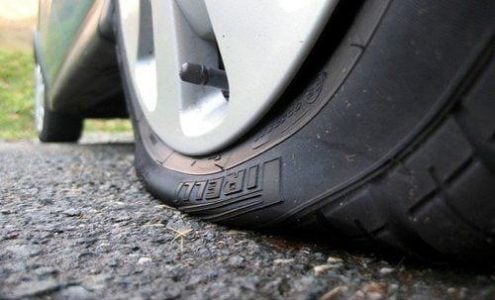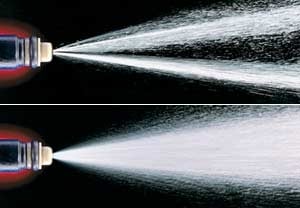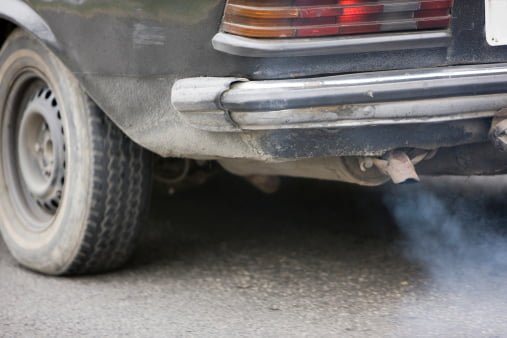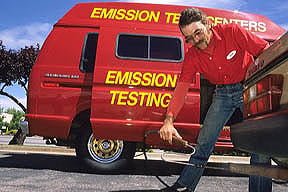Improving gas mileage should be one of the top priorities on your to-do list. According to the Federal Highway Administration the average person will drive over 13,000 miles every year and the average car gets 23.8 miles per gallon based on EPA estimates. If you could improve your fuel mileage even by 5%, the average person would save more than 28 gallons of gas per year, which is both a lot of money, and a significant amount of pollution.
 There are a few ways you can improve your average fuel mileage. The first one would be consider purchasing a new car. In general a smaller car with a smaller engine will get better fuel mileage. Take a look at your current vehicle and see if it fits your life style and what you use your vehicles for. If you use your vehicle mostly for commuting, it may be worth downsizing to a compact or even sub compact car. Unless you are in construction, have a business that requires moving a lot of equipment, or regularly tow a trailer, it usually doesn’t make sense to regularly drive a truck or SUV. Also, when your purchasing a vehicle consider whether you can get a smaller size motor. Again unless you are doing much towing or hauling, a smaller motor will probably have enough power. Maybe not as much power as you want, but you’re probably not in the market for a race car. Also downsizing to a smaller car may up end saving you money in car payments, or cost less than your currently vehicle is worth.
There are a few ways you can improve your average fuel mileage. The first one would be consider purchasing a new car. In general a smaller car with a smaller engine will get better fuel mileage. Take a look at your current vehicle and see if it fits your life style and what you use your vehicles for. If you use your vehicle mostly for commuting, it may be worth downsizing to a compact or even sub compact car. Unless you are in construction, have a business that requires moving a lot of equipment, or regularly tow a trailer, it usually doesn’t make sense to regularly drive a truck or SUV. Also, when your purchasing a vehicle consider whether you can get a smaller size motor. Again unless you are doing much towing or hauling, a smaller motor will probably have enough power. Maybe not as much power as you want, but you’re probably not in the market for a race car. Also downsizing to a smaller car may up end saving you money in car payments, or cost less than your currently vehicle is worth.
If purchasing a new isn’t possible for you there are still some easy ways to improve the gas mileage of your current vehicle that in the long run will save you money in gas they save.
The first thing to do is to make sure your car is properly tuned up and running properly. On older model cars with carburetors this is extremely important and a well tuned carburetor can save a lot of gas. Most of us drive new cars that are fuel injected, but even these still need tune ups.
Gas Saving Tune-Up Check List to improve gas mileage:
- Oxygen Sensors operating properly
- Clean throttle body
- New spark plugs
- Properly operating brakes
- Clean air filter
- Properly inflated tires
- Servicing your fuel delivery system
First, make sure your oxygen sensor is operating properly. The oxygen sensor, or O2 sensor, tells your engine how much gas should be injected into each cylinder. If this sensor has failed, your car will likely still run but will be wasting gas. If the O2 sensor is broken, you will likely have a check engine light come on with a code for a broken O2 or air/fuel ratio sensor. Make sure the get this fixed quickly as the upfront cost will save you money in the long run.
Over time, poor combustion can allow carbon the buildup in your throttle body. This build up can inhibit air flow, sensor operation and small tubes on your engine. Consider having your throttle body cleaned to help improve fuel mileage.
Ensuring your spark plugs are changed as often as recommended can also help increase your fuel mileage. An old or warn spark plug will not produce a powerful spark which will lead to poor combustion and a lack of power. New spark plugs will produce the maximum spark, a more powerful combustion and use less gas.
Brakes sometimes can start to stick in a certain position due to rust, road grime or lack of use. A stuck brake pad or caliper can be like have your brakes constantly applied making your engine work harder to maintain the same speed. Have your brakes checked when you have your pads replaced for sticking and proper operation.
Having a clean air filter is one of the most important things you can do to improve your fuel mileage. Your engine has to pull all the air it uses through the air filter and the dirtier it is, the harder your engine has to work. You can’t always tell your filter needs to be changed by looking at it so make sure you replace the engine air filter at the factory recommended intervals.
 Similarly, a tire with low air pressure is going to be harder to for your engine to move, again making your engine work harder, wasting gas. Most cars will have a sticker on the driver’s side door jam with a list of the recommended tire size and pressure. You should check your tire pressure once a week to ensure it is correct and filled to the factory specifications. Be careful not to over inflate your tires as this will make them ware prematurely.
Similarly, a tire with low air pressure is going to be harder to for your engine to move, again making your engine work harder, wasting gas. Most cars will have a sticker on the driver’s side door jam with a list of the recommended tire size and pressure. You should check your tire pressure once a week to ensure it is correct and filled to the factory specifications. Be careful not to over inflate your tires as this will make them ware prematurely.
Lastly, regularly serving your fuel delivery system can help improve your fuel mileage. The includes replacing your fuel filter at the factory recommended intervals, ensuring you have clean fuel injectors, and keeping a clean combustion chamber. The best and easier way to maintain clean fuel injectors and combustion chambers is to use BlueDevil Fuel MD Fuel System Cleaner every 3,000 miles. When you have ½ a tank of gas or less, pour 1 bottle of BlueDevil Fuel MD into your fuel tank. Operate you vehicle for at least 15 miles, or until the tank is almost empty before refueling. BlueDevil Fuel MD protects fuel systems sensors, dissolves engine deposits on fuel injectors and combustion chambers and will restore your engine to maximum efficiency.
Pictures provided by: hubpages.com, www.nicoclub.com and www.autoevolution.com
BlueDevil Products can be found on Amazon.com or at AutoZone, Advance Auto Parts, O’Reilly Auto Parts, NAPA, and other major auto parts retailers.
Related Articles



